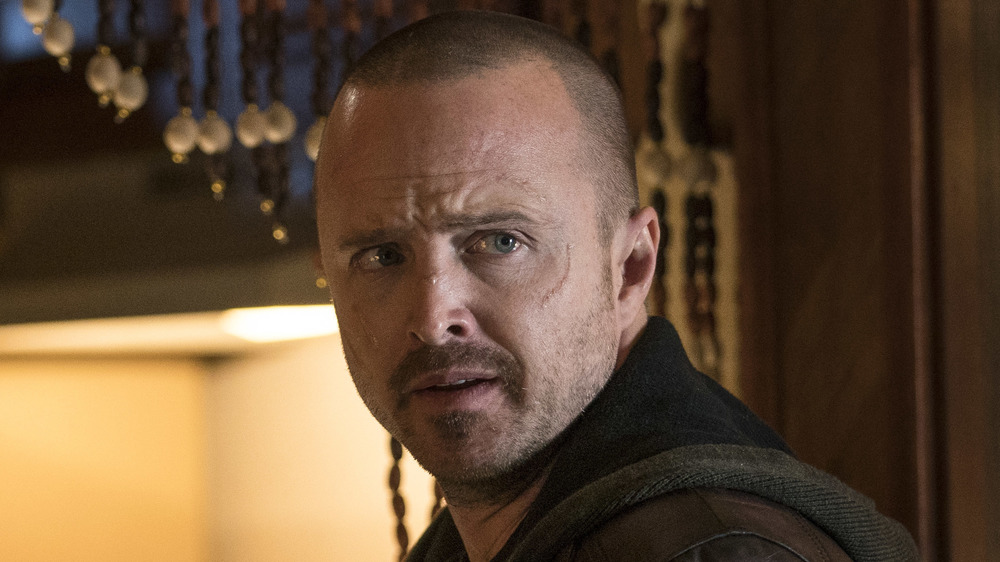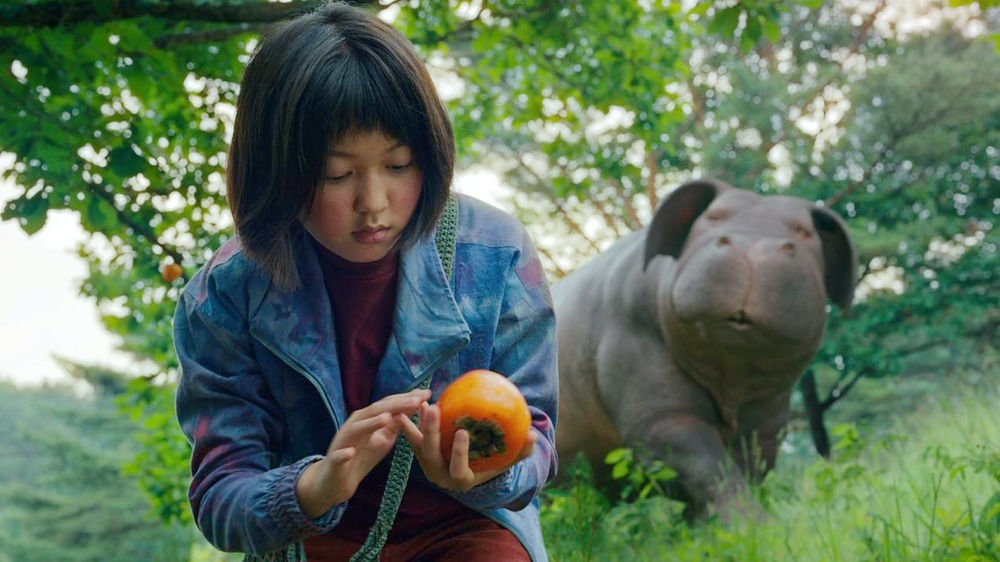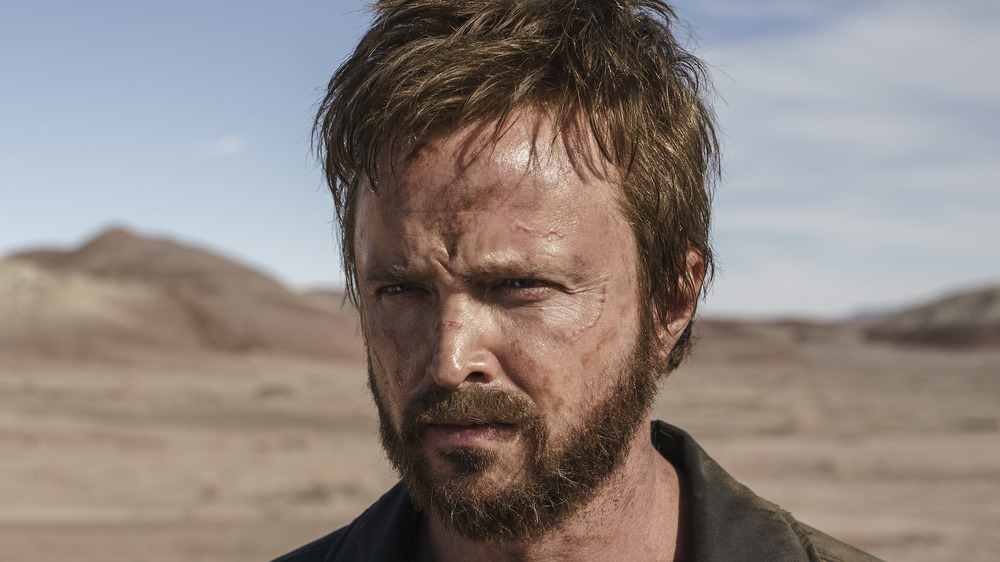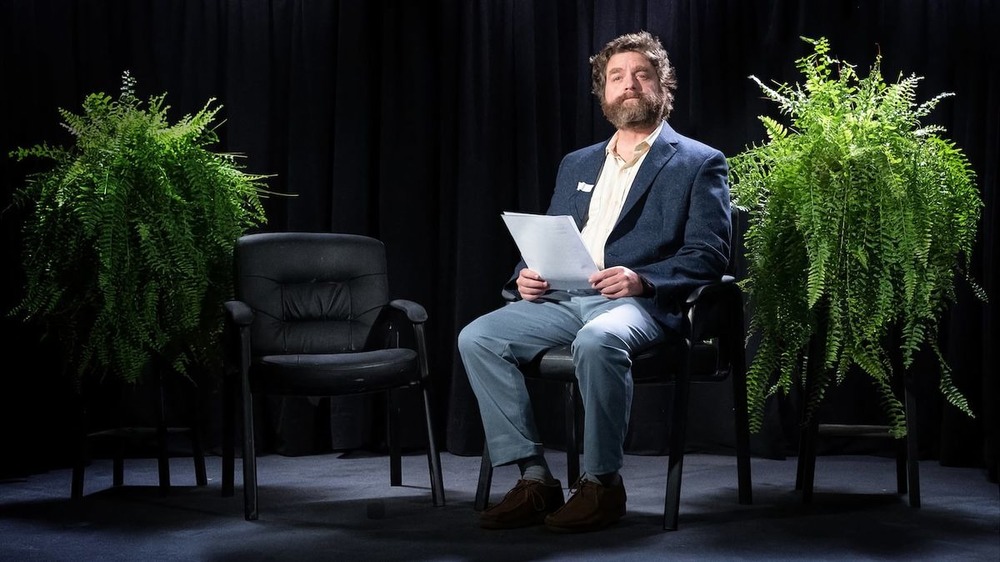Netflix Movies That Almost Had Different Endings
As any filmmaker will tell you, endings are very, very hard. They need to wrap up every major plotline in a way that's logically, thematically, and emotionally satisfying. You don't necessarily need a big twist or last-minute reveal to make your ending sing, but the best ones are both unexpected and, in hindsight, completely inevitable. You'd better get it just right, too. The ending is the last thing your audience is going to see before they turn off the TV, and if the conclusion is even a little off, it's going to color people's memories of the entire movie — and not for the better.
It doesn't matter if you're making a movie for the big screen or a streaming service. Either way, it's difficult work, and it's pretty common for a movie's ending to change during the script writing process, on set, or in the editing suite as the director searches for the perfect conclusion. But don't just take our word for it. Here's how some of your favorite Netflix movies could've ended very, very differently.
Okja
A couple of years before Bong Joon-ho made history with Parasite, the critically acclaimed South Korean filmmaker brought his signature blend of savage social satire, heartstring-tugging drama, and pitch-black humor to Netflix with Okja, a movie about a South Korean teen named Mija and her pet pig. Not that Okja is an ordinary pig, of course. She's actually one of 26 "super-pigs" genetically engineered by the Mirando Corporation in an effort to fight world hunger — and, naturally, make Mirando heaps of money.
When Mirando decides to bring Okja back to the United States for a quick PR stunt before sending her to slaughter, the company doesn't count on Mija's devotion to her animal friend, nor how committed the Animal Liberation Front's activists are to dismantling Mirando's entire operation. After a number of twists, turns, and betrayals, Mija rescues Okja and brings her back to South Korea, along with a new super-piglet to raise. As far as endings go, however, Okja's is pretty mixed. While Mija and Okja get a happy conclusion, the rest of Mirando's super-pig herd remains at the processing plant, where they'll eventually be killed and turned into meat.
That wasn't always the case. As Bong tells The Huffington Post, early versions of the story ended after the ALF had "liberated every single super-pig," saving them from America's dining room tables. Alas, while that would've been a happier ending, Bong thought that it "seemed too cartoonish" while also pulling the focus away from Mija and Okja. And so, he opted for the current, more realistic ending, although he also added the post-credits scene with the ALF leaping back into action in order to end everything on a hopeful note.
El Camino: A Breaking Bad Movie
Characters in the Breaking Bad universe don't usually get happy endings. El Camino, the feature-length sequel to the groundbreaking TV thriller, is the exception. At the end of that movie, former meth cook Jesse Pinkman hasn't just escaped the neo-Nazis who imprisoned him. He's stolen money squirreled away by one of his captors, used it to buy a new identity, and escaped to Alaska, where he's ready to start a whole new life.
That wasn't how Jesse's story was always going to end, though. As Breaking Bad creator Vince Gilligan tells Entertainment Weekly, El Camino was originally going to see Jesse sacrifice his freedom to help someone in need. "The last scene would be maybe him in a jail cell," Gilligan explains. "He wouldn't get a single night's sleep for a week or so upon escaping. The police are looking for him and he's too haunted and he's too adrenaline-charged. And at the end of the thing, he's in a jail cell, and ironically he can fall asleep like a baby."
But when Gilligan pitched that version of the story to friends and co-workers, they balked. Gilligan changed course accordingly. Still, even then, the movie's ending kept changing. At one point, El Camino concluded with a much longer flashback featuring both Jesse's girlfriend Jane and an impromptu marriage proposal. In another version of the ending, the audience heard what was in the letter Jesse wrote to young Brock Cantillo, whose mother died because of Jesse's criminal exploits. "Originally the voiceover of that letter was how the movie ended," Aaron Paul says. "It's heartbreaking, it's beautiful, just honest. But Vince just thought, 'You know what? Maybe it's best left unknown.'" And so, it was.
Between Two Ferns: The Movie
You don't watch Between Two Ferns: The Movie for its plot. Oh, sure, it has one. In the movie, Will Ferrell offers Between Two Ferns host Zach Galifianakis his own late-night talk show if the comedian can land a certain number of interviews, leading to a celebrity-filled cross-country road trip. That's not the point, though. Like the webseries it's based on, Between Two Ferns: The Movie is all about the bite-sized interviews themselves, during which Galifianakis roasts some of the biggest names in show business like only he can.
That's why it's downright shocking that the first cut of Between Two Ferns: The Movie, which clocks in at a brisk 82 minutes, was three hours long. The reason? According to director Scott Auckerman, who you probably know best as the host and co-creator of Comedy Bang! Bang!, it was the ending. Originally, Between Two Ferns featured a sequence in which Galifianakis buys the public access TV station where he cut his teeth and rebuilds the building, with predictably disastrous results. "There's this tap-dancing show happening above them," Auckerman says. "Then there's this giant stunt where the roof caves in and the tap dancer comes crashing through during the interview. We filmed it all."
Unfortunately, the whole subplot ended up getting cut for time. "Majorly expensive stunts that we ended up not using," Auckerman laments. The slapstick comedy wasn't the only casualty of the revised ending, either. As a result of the edits, Auckerman also had to lose most of the interview with Parks and Recreation star Adam Scott, one of Auckerman's close friends. "I had to break it to him that he's barely in the movie," Auckerman says.



